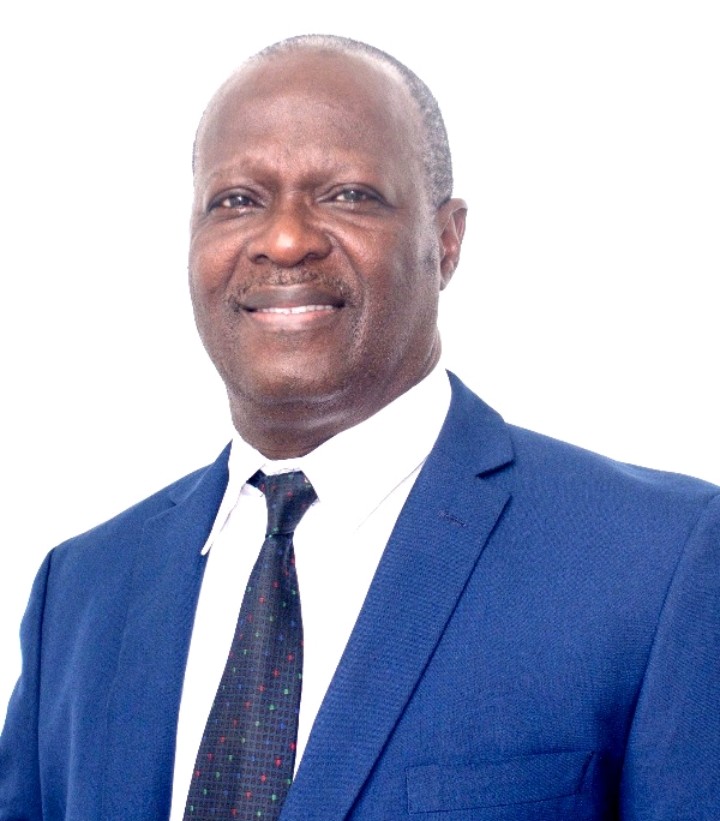
Captain Edward Boyo, the publisher of Aviation and Allied Business Publications has called on the Federal Government to prioritise the aviation industry as the taxes, charges and levies imposed on the industry are excessive.
During a business webinar, organised by Aviation and Allied Business , Africa’s journal of aviation development, in collaboration with Federal Inland Revenue Service (FIRS) , which is now called Nigeria Revenue Service (NRS) , Boyo said the new tax law, enacted through the Finance Act 2023 and signed into law in June 2025, will improve the economy but has no potentials for the aviation industry.
Though he encouraged stakeholders to continue to comply and pay the taxes, he emphasised that key players in the industry are not being allowed to generate the revenues that the country needs in terms of Gross Domestic Product (GDP) as taxation, levies, charges regime are suffocating.
Capt. Boyo stated that the country’s economy is going nowhere without stimulating its aviation industry. He called on the Executive Chairman of NRS , Zacch Adedeji to prioritise the industry in order for it to begin to enjoy the taxation policies of the country.
“There’s nothing in this whole package for the aviation industry. It appears that aviation is not considered a priority industry and there is zero input from the technology level of Nigeria . Everything we utilise are produced outside the country and we are in a drive to domesticate this fair percentage of input so that jobs will be created for our own people. We cannot just be consumers.
“I want to remind President Bola Ahmed Tinubu that aviation is the catalyst for business and economic development. Aviation itself is a means to an end. We should not tax the sector out of existence as it is still infantile.
“We are compliant but even the entire West Africa region is suffering under-development because we are not freeing the industry to function. We’re actually exporting our jobs.We buy aeroplanes and they are very expensive. They are the top of the chain for the aviation industry. Every foreign investment and development that come into this country come by air . Executives and people who founded those organizations and entities fly to those locations.
“Every state is trying to get an airbus because they are looking for the investments that come into those locations and I want to encourage the government to relook this taxation policy as it affects the aviation and air transportation industry. We are trying to bring airfares down. We must cover our costs. This is a safety sensitive industry. Hangars, MROs, and everything that supports the industry to be developed locally don’t exist in the country.The industry is the means to the end. ”
The International Air Transport Association (IATA) Area Manager for West and Central Africa, Samson Fatokun, complained about the different levies imposed on airlines and several other companies in the sector. He pointed that Nigerian tax authorities need operate in line with international treaty that govern the aviation sector.
He emphasised that the new tax law would negatively affect the entire aviation value chain.Fatokun further stated that the industry in Nigeria is a member of global aviation bodies like the International Civil Aviation Organization (ICAO), which is an organ of the United Nation and has been exempted from some charges.
“We used to have the VAT before on domestic passengers transportation.In December 2024, when our president was the chairman of Economic Community of West African States (ECOWAS), the Supplementary Act was established and it stated that no taxation should be on any transportation of passengers and goods by air in ECOWAS countries.
“International and global businesses have treaties that are signed to regulate the global nature of various industries. There are treaties already made that govern the global aviation industry, even the economic side, the financial and the taxation side.
“Nigeria is a member of ICAO, which is an organ of the United Nations. Nigeria is also subject to regulation with regard to taxation that has been made by those organizations and is bound to respect that because Nigerian carriers fly out, we also have foreign carriers flying out.”
The Managing Director of Pathfinders International Limited, Mrs. Nkechi Onyenso stressed that there’s need for further engagement with stakeholders and the NRS as here are some loopholes that may cause problems in the implementation of the new tax laws. She added that the VAT will adversely affect passenger traffic .
“I have observed that airlines have very low number of passengers as it is now. I’m just wondering about the impact of the introduction of the VAT on airline tickets that will affect the prices of these tickets and how much it will further impact on the passenger flow of the airlines.There are also some standard costs that the airlines have to pay, but the revenue comes from the passengers.”
An economist and a former Rector of the Nigerian College of Aviation Technology (NCAT), Zaria, Capt. Samuel Caulcrick stated that the major funding of aviation agencies comes from 5% deductions from ticket sales and cargo charges, known as Ticket Sales Charges (TSC) and Cargo Sales Charges (CSC) which according to him have “choked” the export cargo and freight charges.
He said NRS needs to avoid double taxation for the industry as he stated clearly that TSC and CSC are two major sources of revenue .
“The TSC Act of 2023 should be repealed .The taxes have reduced the number of people who are able to occupy seats on our airlines.
Assistant Director, Tax Policy and Advisory , NRS, Mrs. Nkechi Umegakwe, who was the lead speaker said for the aviation industry, the implementation of the new tax laws attracts no incentive.
She explained that the NRS is trying to consider every sector and to amend the law in such a way that there’s ease of doing business for every Nigerian company and compliance as well.
According to her, the NRS is working towards stimulating the Nigeria economy as it is growing and the government has tried to bring Nigeria at par with global best practice being a member of several global tax forums.
” Nigeria is a member of several global tax forums and we contribute a lot at least for Africa and on the global level. We cannot be a major participant and contributor at the global tax level and our laws ,administration and system is not up to par. The laws also look at broadening the tax base because when the tax base is broadened, the government gets an increase in revenue because government needs money to run the economy.”
The Director of Air Transport Management, Mr. Ahmed Tijani Mohammed, who represented the Minister of Aviation and Aerospace Development, Festus Keyamo, said the Minister’s position is that the tax reform has its own peculiarity even though its needed by the government and the aviation industry .He said the aviation industry is highly regulated under the umbrella body globally.
“Article 15 of the ICAO document talks about the need for Civil Aviation Agencies globally to be independent. These key points underscore the importance of having an independent Civil Aviation body to regulate and ensure safety of operation in the sector.”












8qggd6
19i2bh